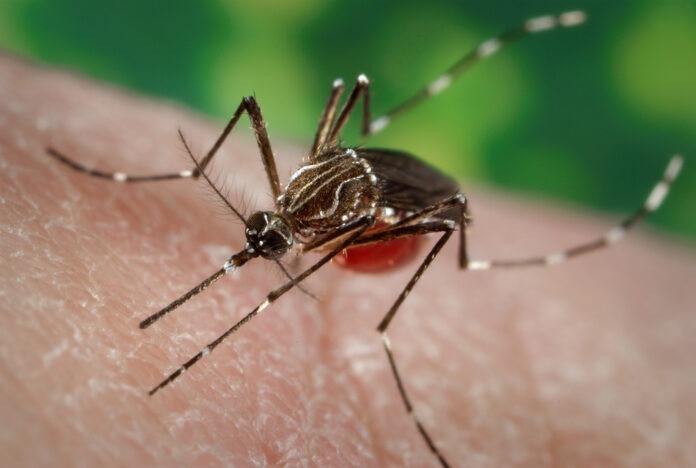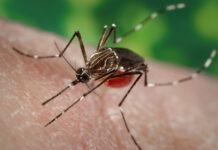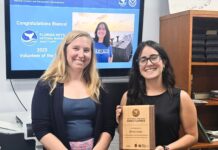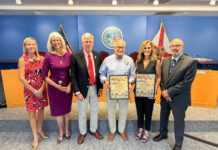
Aug. 20 is World Mosquito Day, a date that marks Sir Ronald Ross’ groundbreaking discovery in 1897 that mosquitoes spread malaria.
Globally, the day is a reminder of the deadly role mosquitoes play in human history and public health. Here in Florida, and especially in the Keys, it’s also an opportunity to reflect on how deeply mosquitoes affect not just our health, but our environment, economy and way of life.
Few places in the United States face a mosquito challenge as persistent as the Keys. Our warm, tropical climate, lush vegetation and year-round humidity create the perfect breeding ground for dozens of mosquito species. Among them, Aedes aegypti is the variety that merits the most attention.
This small, striped mosquito may not look like much to the naked eye, but it is always capable of spreading some of the world’s most concerning diseases, including dengue fever, Zika virus, chikungunya and yellow fever.
For a community that depends on tourism and loves outdoor living, mosquitoes aren’t just a nuisance — they’re a threat to our health and to our economy. Visitors don’t come here to continually swat mosquitoes on their vacations, and residents don’t want to worry about viruses in their own backyards. That’s why controlling these pests is about more than comfort; it’s about keeping people safe and keeping the Keys livable.
The stakes are extremely high.
Even in 2025, mosquitoes remain the deadliest animals on Earth, responsible for more than 700,000 human deaths every year.
While malaria is not a threat in the United States today, mosquito-borne viruses are a very real concern in South Florida. Local outbreaks of dengue and Zika have already occurred in recent years, and the risks continue to grow. Rising temperatures are expanding mosquito habitats, urban growth is creating more breeding sites, and global travel makes it easier than ever for viruses to spread quickly across continents.
We don’t have to look far for proof. Right now, China is grappling with its worst chikungunya outbreak on record, with more than 7,000 cases.
Authorities there have scrambled to respond using drones, mosquito-eating fish and even lockdown-style restrictions to slow the outbreak. In response, the U.S. Centers for Disease Control and Prevention (CDC) issued a Level 2 travel notice, urging travelers to take enhanced precautions, such as using repellents, wearing long sleeves and pants, ensuring sleeping areas are mosquito-proof, and considering vaccination when appropriate.
It’s important to note that chikungunya hasn’t been spread locally in the United States since 2019. The handful of U.S. cases reported each year are almost all travel-related. But outbreaks abroad are a reminder of how quickly mosquito-borne illnesses can resurface if our vigilance lapses. Travelers returning home can carry the virus, and with the right conditions, local mosquitoes could spread it further.
That’s why on World Mosquito Day, we should recognize mosquito control for what it truly is: a public health necessity.
It’s not just about fewer bites at a barbecue. It’s about preventing dangerous viruses from gaining a foothold in our communities. As climate change reshapes mosquito habitats and raises the odds of new diseases spreading northward, the work being done in the Keys often serves as a model for other regions in the U.S.
At the Florida Keys Mosquito Control District, we take this responsibility seriously. Every day, our team uses a combination of science, technology and old-fashioned hard work to protect our community. From aerial applications and ground treatments to biological controls and innovative research, our approach is comprehensive and constantly evolving. But our success depends on more than our efforts alone — it also requires ongoing public support and community involvement.
On this World Mosquito Day, we should remember that mosquitoes may be the deadliest animals on Earth, but they don’t have the upper hand!
As long as we stay committed, informed and proactive, we can continue to keep our families safe, our environment healthy, and our economy strong. Here in the Keys, that fight continues — one mosquito, and one bite, at a time.
Andrea Leal, Executive Director, Florida Keys Mosquito Control District
Marathon






















